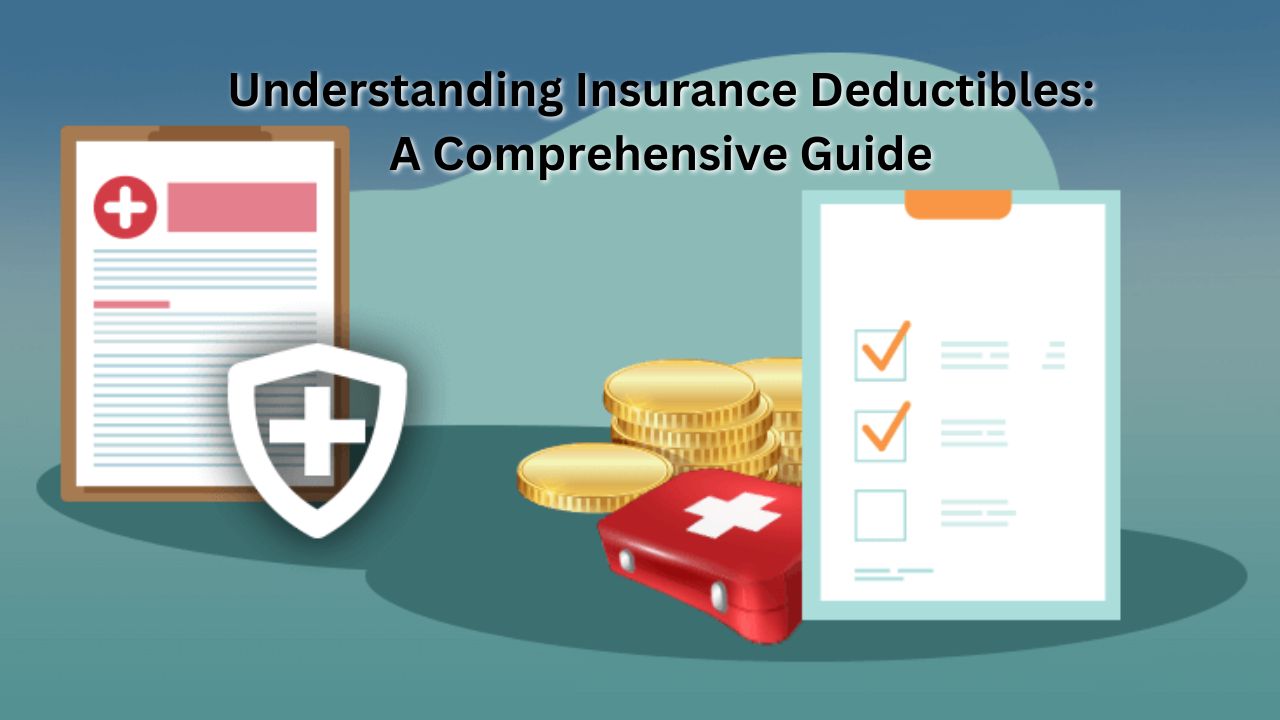
Insurance is a critical aspect of financial planning, providing protection against unforeseen events that could otherwise lead to significant financial losses. One crucial element of any insurance policy is the deductible.
Understanding how deductibles work can help you make informed decisions about your coverage and manage your insurance costs effectively. In this article, we will delve into the concept of insurance deductibles, how they function, and their impact on your insurance policy.
What is an Insurance Deductible?

An insurance deductible is the amount of money you agree to pay out-of-pocket before your insurance coverage kicks in.
Deductibles are a standard feature of most insurance policies, including health, auto, homeowners, and business insurance. Essentially, the deductible is your share of the financial responsibility for a covered loss.
How Do Insurance Deductibles Work?
When you file a claim for a covered loss, the insurance company will first determine the total amount of the claim. Then, the deductible is subtracted from this total, and the insurer pays the remaining balance.
For example, if you have an auto insurance policy with a $500 deductible and you file a claim for $2,000 in damages, you will pay the first $500, and the insurance company will cover the remaining $1,500.
Types of Insurance Deductibles

Insurance deductibles can vary depending on the type of policy. Here are some common types:
- Fixed Deductible: A specific dollar amount that you pay for each claim. This is common in auto and homeowners insurance policies.
- Percentage Deductible: Based on a percentage of the insured value. This is often seen in homeowners insurance, particularly for coverage against natural disasters like hurricanes and earthquakes. For example, if your home is insured for $200,000 and you have a 2% deductible, you would pay $4,000 for a covered claim.
- Per-Claim Deductible: Applies to each individual claim you file. Each time you make a claim, you are responsible for paying the deductible amount.
- Annual Deductible: Common in health insurance policies, this deductible applies to the total amount you pay out-of-pocket over a year before your insurance starts to cover expenses. Once you meet your annual deductible, you may only be responsible for copayments or coinsurance for additional covered services.
The Impact of Deductibles on Premiums
Deductibles play a significant role in determining your insurance premiums. Generally, there is an inverse relationship between deductibles and premiums:
- Higher Deductibles, Lower Premiums: When you choose a higher deductible, you are taking on more financial responsibility for potential claims. As a result, the insurance company charges you lower premiums.
- Lower Deductibles, Higher Premiums: Opting for a lower deductible means the insurance company will have to pay more in the event of a claim, leading to higher premiums for the policyholder.
- Choosing the right balance between deductibles and premiums is a crucial aspect of managing your insurance costs. Consider your financial situation and your ability to pay the deductible amount in the event of a claim.
Advantages and Disadvantages of High and Low Deductibles

High Deductibles:
Advantages:
Lower premium costs, which can lead to significant savings over time.
Encourages more mindful use of insurance, potentially reducing the number of claims and keeping premiums low.
Disadvantages:
Higher out-of-pocket costs in the event of a claim, which can be financially burdensome.
May deter policyholders from filing smaller claims, leading to potential delays in necessary repairs or medical treatments.
Low Deductibles:
Advantages:
Lower out-of-pocket costs when you file a claim, providing immediate financial relief.
Greater peace of mind knowing that you won’t have to pay a large sum in the event of a loss.
Disadvantages:
Higher premium costs, which can add up significantly over time.
May lead to more frequent claims, potentially increasing future premiums.
Factors to Consider When Choosing a Deductible
Selecting the right deductible involves balancing your financial capability and risk tolerance. Here are some factors to consider:
- Financial Situation: Assess your ability to pay the deductible amount in the event of a claim. If you have sufficient savings, you might opt for a higher deductible to lower your premiums.
- Risk Exposure: Consider the likelihood of filing a claim. If you live in an area prone to natural disasters or have a history of frequent claims, a lower deductible might be more practical.
- Policy Type: Different types of insurance policies may require different deductible strategies. For example, health insurance deductibles are often considered based on annual healthcare costs, while auto insurance deductibles are evaluated based on driving habits and vehicle value.
- Long-Term Costs: Calculate the potential savings from lower premiums against the risk of higher out-of-pocket costs. Over time, the savings from higher deductibles might outweigh the occasional higher expense of a claim.
Conclusion
Understanding insurance deductibles is essential for making informed decisions about your coverage and managing your insurance costs effectively. Deductibles represent your share of the financial responsibility in the event of a claim and play a significant role in determining your insurance premiums. By carefully evaluating your financial situation, risk exposure, and long-term costs, you can choose a deductible that aligns with your needs and provides the right balance between affordability and protection.
Whether you opt for a high or low deductible, the key is to ensure that you have the necessary funds available to cover the deductible amount if you need to file a claim. A well-thought-out insurance strategy, including an appropriate deductible choice, can provide peace of mind and financial security in the face of life’s uncertainties.
- Your Ultimate Guide to Travel Insurance for Adventure Sports
- A Guide to Renters Insurance for Pet Owners: Pet-Proof Your Policy
- Safeguard Your Future: Understanding Identity Theft Insurance
- Safeguard Your Event: Understanding Event Cancellation Insurance
- Everything You Need to Know About Critical Illness Insurance Riders
- Home Equity Loans vs. HELOCs: Which is Right for You?












